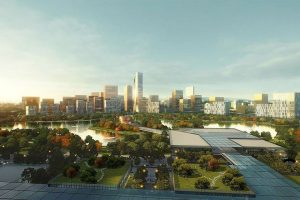Autonomous bus service launches as demonstrator program in Clark
AN AUTONOMOUS bus service, the first in the Philippines, was launched on Tuesday in New Clark City, the Bases Conversion and Development Authority (BCDA) said. “By integrating smart autonomous vehicle technology, we ensure a more sustainable and scalable transport solution here in Clark,” BCDA Executive Vice-President and Chief Operating Officer Gisela Z. Kalalo said in […]

AN AUTONOMOUS bus service, the first in the Philippines, was launched on Tuesday in New Clark City, the Bases Conversion and Development Authority (BCDA) said.
“By integrating smart autonomous vehicle technology, we ensure a more sustainable and scalable transport solution here in Clark,” BCDA Executive Vice-President and Chief Operating Officer Gisela Z. Kalalo said in a statement.
“This will positively transform the everyday lives of those living and working within Clark — making it easier to get around, reducing congestion, and promoting a green and low-carbon environment,” she added.
The BCDA said the bus service is a partnership between Japan’s Zenmov, Inc. and MC Metro Transport Operation, Inc.
The project stems from a tieup with a Japanese research agency, the New Energy and Industry Technology Development Organization (NEDO), to roll out a smart mobility demonstration program.
NEDO appointed Zemnov to implement the demonstration program, which will run until June 2025.
“The demonstration project will come at no cost for the Philippine government, with NEDO and Zenmov committing to finance the project,” the BCDA said.
As part of the demonstration, a new public transportation system, known as the Primary Rapid Transit, will run on selected routes in New Clark City, Clark Freeport Zone, and Clark International Airport.
The Smart Mobility Operation Cloud technology allows Zenmov to measure and verify the effectiveness of the public transport service with the aim of maximizing operational availability for a given number of vehicles.
Zenmov and MC Metro are also seeking to deploy low-carbon electric vehicles and electric-assisted bicycles.
Smart poles, drones, and charging stations will also be installed to help with real-time data collection to optimize traffic management along the bus route. — Justine Irish D. Tabile























